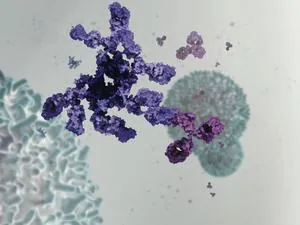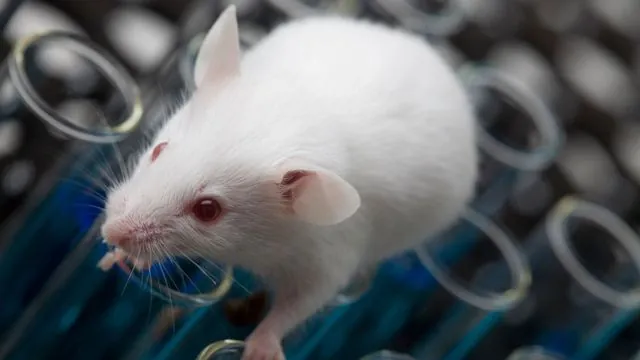
Breakthrough Study Unveils Why Some Cancer Patients Struggle with Infections During Immunotherapy
2024-11-26
Author: Nur
Introduction
A groundbreaking multinational study, co-led by the Garvan Institute of Medical Research, has shed light on a puzzling issue faced by cancer patients undergoing immunotherapy treatments, specifically those using checkpoint inhibitors. This research, published in the esteemed journal *Immunity*, reveals critical insights into how these therapies can inadvertently weaken the body's defenses against common infections.
Key Findings
Professor Stuart Tangye, a co-senior author of the study and Head of the Immunology and Immunodeficiency Lab at Garvan, explains, “Checkpoint inhibitor therapies have transformed the landscape of cancer treatment, empowering T cells to vigorously target tumors. However, this advancement comes with complications; about 20% of patients treated with these inhibitors report a heightened risk of infections—a concern that’s been largely overlooked until now.”
Impact on B Cells
The study uncovers that while checkpoint inhibitors enhance cancer-fighting immune responses, they may simultaneously impair B cells, the immune system's crucial builders of antibodies that fend off infections. This dual effect is pivotal in understanding how patients can experience increased susceptibility to illnesses while battling cancer.
Role of PD-1
The research team focused on the role of the PD-1 molecule, which functions as a brake on the immune system, preventing T cells from excessive activation. Checkpoint inhibitors work by lifting this restraint, boosting the body’s ability to eliminate cancer cells. However, the findings highlight an unexpected consequence: a reduction in the diversity and quality of antibodies produced by memory B cells in patients with dysfunctional PD-1 activity.
Genetic Insights
Dr. Masato Ogishi, the first author from Rockefeller University, adds, “Individuals with genetic deficiencies in PD-1 or its partner PD-L1 exhibit reduced antibody diversity and memory B cell quantities, resulting in a diminished capacity to generate effective antibodies against familiar viruses and bacteria.”
The Yin and Yang of Immunotherapy
Co-author Dr. Kenji Chamoto from Kyoto University elaborates on this phenomenon, referring to the 'yin and yang' nature of PD-1 inhibition, which boosts tumor-fighting immunity while simultaneously undermining B cell responses. The implications are clear: while enhancing anti-tumor efficacy is crucial, protecting patients against infections should not be neglected.
Recommendations for Clinicians
The researchers advocate for increased vigilance among clinicians, recommending the monitoring of B cell function in patients receiving these therapies and considering preventive strategies for those at risk of infections. Dr. Stéphanie Boisson-Dupuis, also a co-senior author, suggests that immunoglobulin replacement therapy (IgRT), a treatment that replenishes antibodies in patients with immune deficiencies, could be a viable preventative option for vulnerable cancer patients.
Conclusion
This study demonstrates how investigating rare genetic conditions contributes significantly to our understanding of the immune system, offering pathways to optimize cancer immunotherapies without compromising overall health. The researchers plan to refine checkpoint inhibitor treatments to ensure they continue to maintain their powerful effects against cancer while safeguarding patients’ ability to combat infections.
Future Directions
As immunotherapy continues to evolve, understanding the intricate balance between enhancing anti-cancer capabilities and preserving immune health is paramount, paving the way for advancements that could benefit countless individuals battling cancer.


 Brasil (PT)
Brasil (PT)
 Canada (EN)
Canada (EN)
 Chile (ES)
Chile (ES)
 España (ES)
España (ES)
 France (FR)
France (FR)
 Hong Kong (EN)
Hong Kong (EN)
 Italia (IT)
Italia (IT)
 日本 (JA)
日本 (JA)
 Magyarország (HU)
Magyarország (HU)
 Norge (NO)
Norge (NO)
 Polska (PL)
Polska (PL)
 Schweiz (DE)
Schweiz (DE)
 Singapore (EN)
Singapore (EN)
 Sverige (SV)
Sverige (SV)
 Suomi (FI)
Suomi (FI)
 Türkiye (TR)
Türkiye (TR)